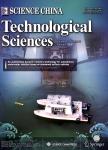Evaluation for the paleodose in thermoluminescence dating of porcelain
Evaluation for the paleodose in thermoluminescence dating of porcelain作者机构:Research Laboratory for Conservation & Archaeology Shanghai Museum Shanghai 200050 China
出 版 物:《Science China(Technological Sciences)》 (中国科学(技术科学英文版))
年 卷 期:2008年第51卷第3期
页 面:260-267页
核心收录:
学科分类:08[工学] 0805[工学-材料科学与工程(可授工学、理学学位)] 080502[工学-材料学]
主 题:thermoluminescence dating porcelain paleodose build-up attenuation average beta dose
摘 要:Sources, components and calibration of paleodose were studied for proper evalua- tion of the paleodose of porcelain in thermoluminescence (TL) dating. In the TL dating of porcelain using the pre-dose technique, the β dose from the internal natural radiation in the body of porcelain is the first, the environmental dose the second, and the α dose negligible. Sample thickness of 0.2―0.5 mm was used in the paleodose calibration. For a porcelain sample of such thickness, the distribu- tion of β dose inside the sample was nonlinear when the sample (aluminium re- places porcelain in this experiment) was irradiated by a laboratory 90Sr-90Y β source. Therefore, the β dose used was only an average value. A distribution curve of β dose and the calculation of average β dose in the sample were obtained, according to the build-up and attenuation effects of β dose in the sample. The results showed that a sample thickness of 200 μm resulted in an average dose increment of about 4% compared to the surface whereas for a sample with a thickness of 400 μm, the average dose reduced by the same percentage, and that for a sample of 300 μm in thickness the average dose is equal to surface dose approximately. The average β dose in samples with various thickness can be obtained by the provided equations.




